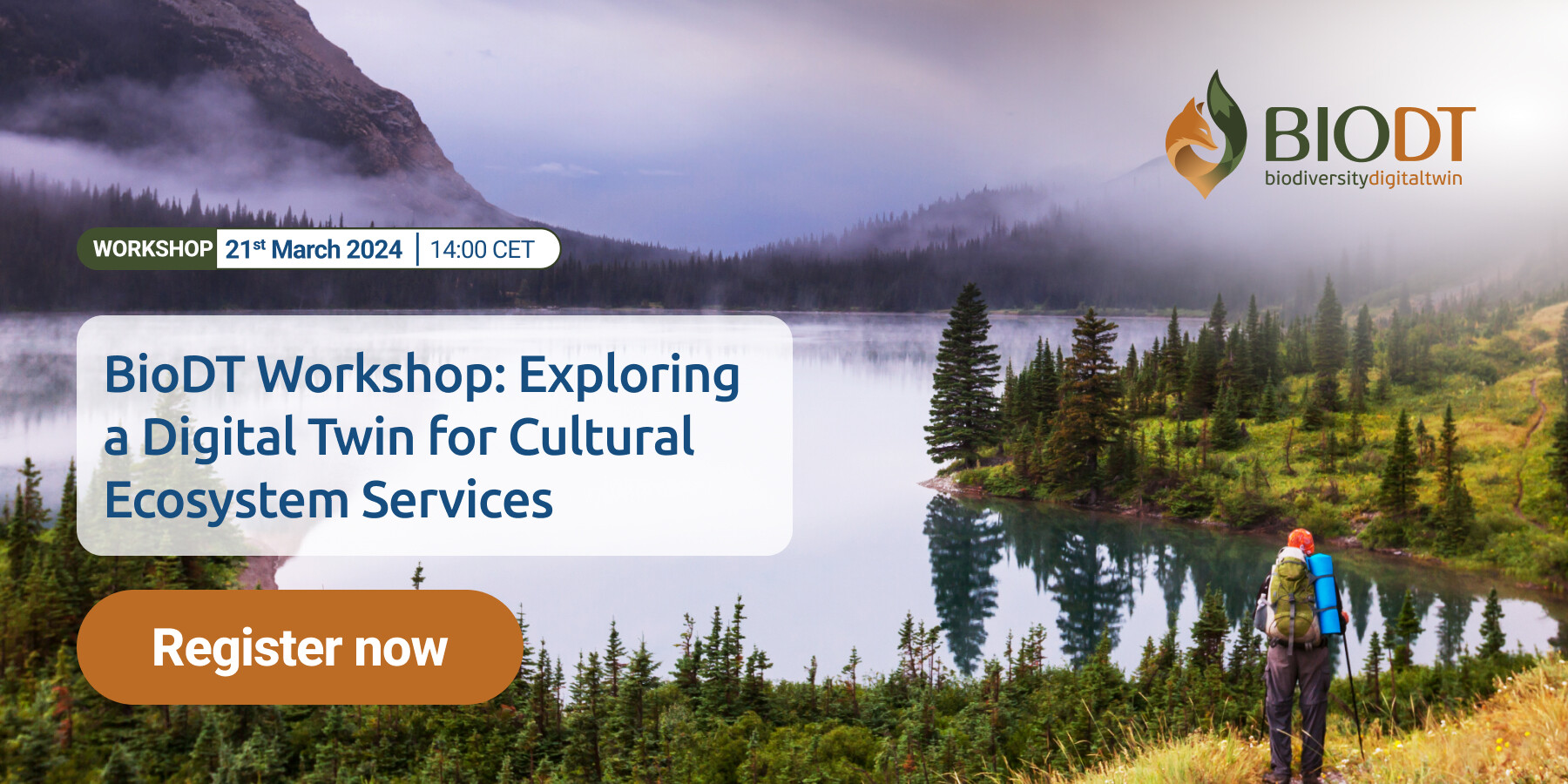
With biodiversity facing unprecedented threats, innovative solutions are urgently needed. The Trust-IT team is excited to be part of the BioDT, an EU-funded project developing a Biodiversity Digital Twin (BioDT) prototype. This innovative solution harnesses the colossal computing capabilities of the LUMI Supercomputer, equivalent to roughly 1.5 million laptop computers. By leveraging this immense power, the BioDT prototype utilises advanced modelling and AI to predict global biodiversity dynamics and support data-driven conservation efforts.
What is a Biodiversity Digital Twin?
The BioDT prototype leverages powerful computing resources like the LUMI Supercomputer and FAIR data principles to create a digital replica of real-world ecosystems. This digital twin integrates various data sources, including biodiversity information, environmental factors, and even human interaction with the environment. BioDT utilises this rich data to simulate and predict how ecosystems will respond to future changes, such as climate change or human activities.
The BioDT project aligns with key EU and international environmental goals like the EU Biodiversity Strategy 2030 and the UN Sustainable Development Goals.
Why Focus on Cultural Ecosystem Services?
Ecosystem services encompass the many benefits humans derive from nature. Traditionally, research has focused on provisioning services (e.g., food, water) and regulating services (e.g., flood control). However, cultural ecosystem services (CES), which encompass the recreational and aesthetic experiences nature provides, have received less attention.
BioDT pDT for Cultural Ecosystem Services Workshop
To address this gap, the BioDT project is hosting an online workshop on the 21st of March 2024, dedicated to a pioneering prototype digital twin (pDT) for Cultural Ecosystem Services. This pDT brings together two important aspects: recreation potential (RP) and biodiversity occurrence (BD). By integrating user-defined recreation preferences with real-time biodiversity data, this pDT aims to provide a multifaceted view of cultural ecosystem services.
The workshop seeks valuable expert feedback to refine the pDT prototype, improve its development roadmap, and enhance the models and user interface.
Exploring the Case Study: The Cairngorms National Park
The workshop will delve into a case study focusing on the Cairngorms National Park in Scotland. This initial proof-of-concept will explore how the pDT can be used by various stakeholders: citizens seeking recreational activities in nature, scientists contributing scientific data, land managers balancing biodiversity conservation with recreational needs, policymakers navigating development, conservation, and recreation priorities, researchers testing socio-ecological hypotheses.
By utilising data from professional monitoring, acoustic monitoring, camera traps, and social science research conducted in the Cairngorms, the pDT can offer valuable insights. Additionally, the workshop will explore how an adaptive sampling approach can involve citizen scientists in improving the pDT's accuracy.
Transparency and Open Science
The BioDT project prioritises transparency and open science. The workshop will address how the entire data processing chain, from raw data to generated outputs, will be documented. Input data will be referenced using persistent identifiers, and processing methods will be publicly documented. Similarly, the models used in the pDT will be documented with varying levels of detail, potentially including code used in the use case.
The publication of these components ensures data findability, accessibility, and allows external researchers to verify the generated results.
We invite you to join us for this exciting workshop and contribute to shaping the future of cultural ecosystem service research with the BioDT pDT.